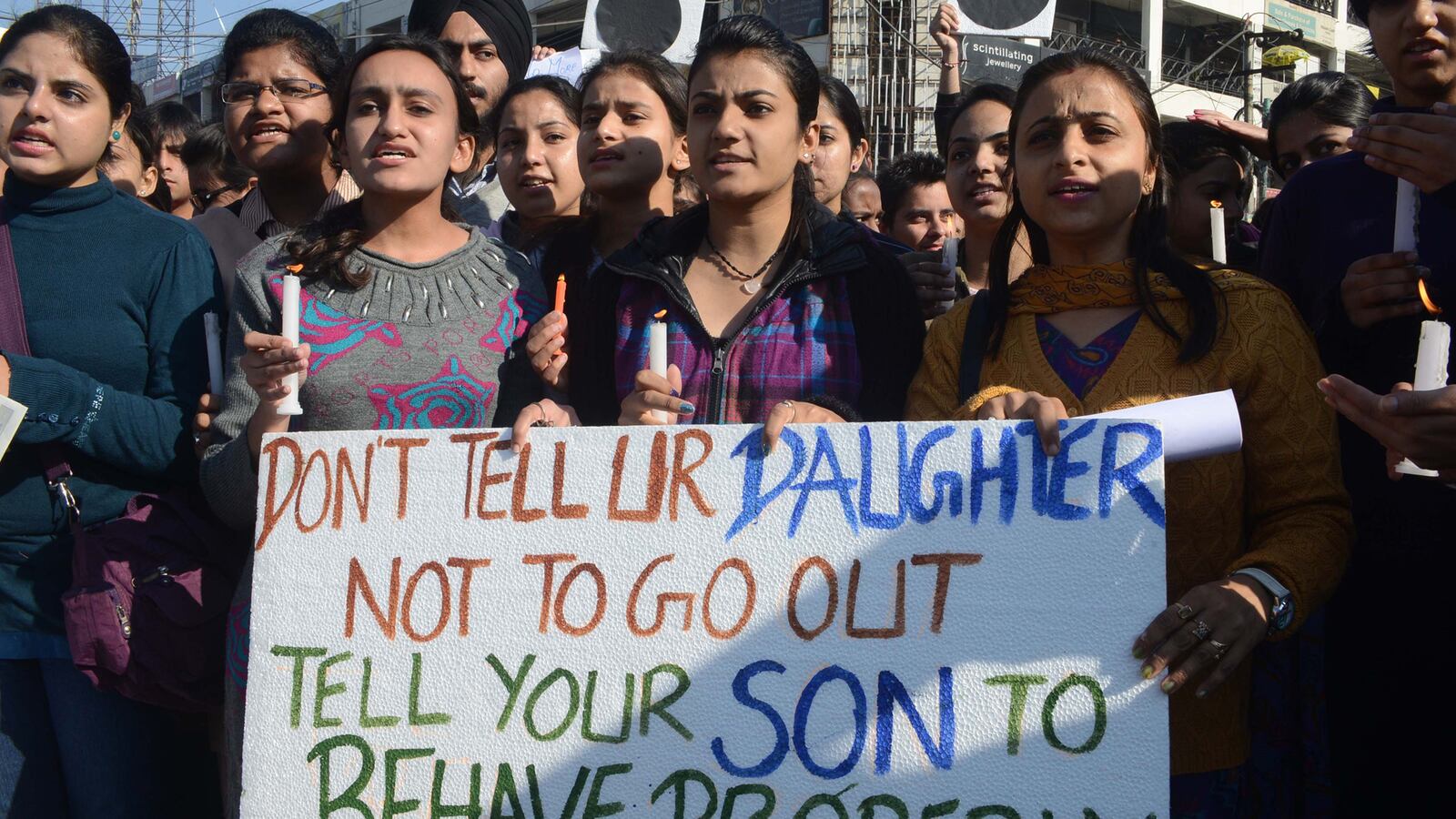Rape is a hate crime. It is a purely criminal act designed to induce terror. By brutalizing a woman, the intent is to humiliate, degrade, and ultimately break her. And as such, it is not only a violent act against an individual—it is violence committed against their family and their children with devastating effects.

My mother Nadia was repeatedly raped by her stepfather as a teenager. When she eventually had the courage to come forward, she was nevertheless forced by the rest of her family to remain silent. They feared the stigma and dishonor that mark the family of a rape victim.
Recently, the world’s attention focused on the horrific assault of a 23-year old medical student in Delhi. While riding a bus, the woman was brutally raped, beaten, and mutilated with a metal rod.
The attack was met with global anger, indignation, and unprecedented protests in India. Women—and even men—marched in protest. The politicians took notice. They promised change. But as much as they need to change the approach to rape, they must lead the way in changing the culture of rape. Globally, we have to address the fact that rape and sexual assault in many cases go unreported, and that survivors are often pressured to remain silent about their ordeal.
Many survivors do not report sexual assaults because it is associated with shame and a profound fear. At the same time, culturally, the gravity of the crime is downplayed. Worse, blame for the rape is often directed at the victim rather than the perpetrator; on the way she dressed, on the way she walked, or simply on the on the fact that she was a woman. As a Canadian police constable so memorably put it a few years ago: “Women should avoid dressing like sluts in order not to be victimized.”
Many families believe it’s a contagious shame. In some parts of the world, relatives of the victim see the rape as a dishonor against the family and the tribe, and in some cases kill the victim or induce her to commit suicide. Some try to “repair the damage” by forcing the victim to wed the man who assaulted her. Many women choose death instead. Last week, an 18-year old woman in Punjab chose to drink poison after being pressured by the police to marry her attacker.
Every time I read or hear about a new case of sexual violence, it brings back terrible memories of how my mother was twice victimized. The first punishment was the physical and psychological trauma of the assault itself. The second was the culture of silence imposed on her. Tragically, there are millions of stories similar to hers. What happened to my mother happens to millions of women every day around the world. In many places, it’s a crime that is swept under the rug.
The reaction of my mother’s family to her rape was horrendous. They saw her as the seducer. And the pain she felt because of her family’s response plagued her throughout her life. Although she escaped her stepfather by running away from home, and later married and had children, her rape pushed her into a deep and irreversible depression, worsened when she learned that her sister had been raped by the same man. It tormented her until she killed herself.

I was only five years old when my mother committed suicide. The impact of her rape continues to haunt me, and it even affects my daughter. In the choices I have made to become a reporter with a focus on telling the stories of persecuted communities, especially women, I see the legacy of my mother. And I am not sure it’s a coincidence that my daughter’s favorite book is Toni Morrison's Beloved, or that her favorite high-school class this year focuses on feminism.
Recently, my daughter was assigned an essay that asked why she needed feminism. She wrote: “I need feminism because I cannot accept how prevalent injustice has become in our society. I need feminism because I cannot come to terms with the contemporary acceptance of women’s political, economic, and social inequality … Since feminism has become a part of my life I have developed a passion for social justice and for equality.”
It is time to acknowledge that sexual assault is a hate crime, and that we cannot obliterate hate through punishment or legislation alone. We must reject and condemn the language and behavior of sexism and misogyny entrenched in every culture, because it is merely a coded way of saying that women are sexual objects, and therefore the problem. As protesters said in India last week, “Don’t tell your daughter not to go out. Tell your son to behave properly.”
On Thursday, five of the six men who attacked the medical student in Delhi were charged with gang-rape, kidnap, and murder. While a positive development, it is also a politically convenient one. It is easier to indict a handful of men than to transform an entire system. The only way to incite change is to push this topic onto the world stage. We urgently need a global and concentrated campaign against the sexism and misogyny that drives sexual violence against women, and a fundamental reversal of the way that women are viewed in society. This campaign must start now in every home and school. How many more victims do we need before this war on women ends?






